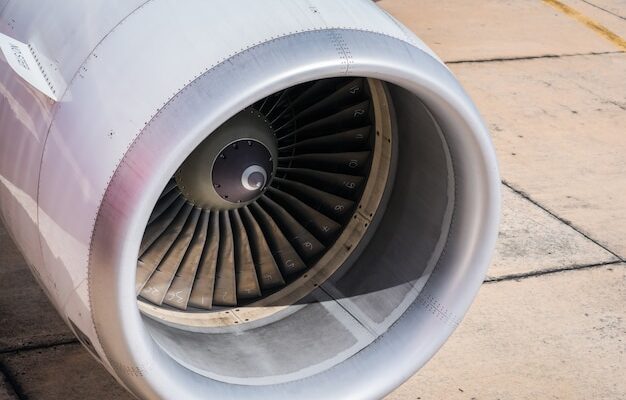The Aerospace And Defense Components by The Business Research Company provides market overview across 60+ geographies in the seven regions – Asia-Pacific, Western Europe, Eastern Europe, North America, South America, the Middle East, and Africa, encompassing 27 major global industries. The report presents a comprehensive analysis over a ten-year historic period (2010-2021) and extends its insights into a ten-year forecast period (2023-2033).
Learn More On The Aerospace And Defense Components Market:
https://www.thebusinessresearchcompany.com/report/aerospace-and-defense-components-global-market-report
According to The Business Research Company’s Aerospace And Defense Components , The aerospace and defense components market size has grown rapidly in recent years. It will grow from $59.59 billion in 2023 to $66.42 billion in 2024 at a compound annual growth rate (CAGR) of 11.4%. The growth in the historic period can be attributed to global military spending, commercial aviation growth, geopolitical tensions, space exploration initiatives, upgrades and modernization, cybersecurity concerns..
The aerospace and defense components market size is expected to see rapid growth in the next few years. It will grow to $98.92 billion in 2028 at a compound annual growth rate (CAGR) of 10.5%. The growth in the forecast period can be attributed to increasing global threats, space commercialization, renewable energy in aviation, additive manufacturing, electronics miniaturization, global air traffic growth.. Major trends in the forecast period include additive manufacturing and 3d printing, electric and hybrid propulsion systems, increased connectivity and iot integration, autonomous and unmanned systems, supply chain resilience and digitalization..
The rising number of air travelers will support the growth of the aerospace and defense components market. Air travelers are individuals who use airplanes as a mode of transportation for domestic or international travel. The demand for air travel drives the need for efficient, lightweight and high-performance components to meet the demands of modern aircraft. For example, the International Air Transport Association (IATA), a trade association of the world’s airlines, announced strong demand growth in air travel for March 2023. Total global air traffic in March 2023 (measured in revenue passenger kilometers or RPKs) rose 52.4% compared to March 2022 . Therefore, the rising number of air travelers will drive the growth of the aerospace and defense components market.
Get A Free Sample Of The Report (Includes Graphs And Tables):
https://www.thebusinessresearchcompany.com/sample_request?id=9202&type=smp
The aerospace and defense components market covered in this report is segmented –
1) By Product: Aluminum, Titanium, Composites, Superalloys, Steel, Plastics, Other Products
2) By Application: Engine, Aerostructure, Interiors, Equipment, System And Support, Avionics
3) By End User: Commercial, Business And General Aviation, Military, Other Users
Technological advancement is a key trend gaining popularity in the aerospace and defense component markets. Major companies operating in the aerospace and defense components market are focused on developing resin technology solutions to strengthen their position. For instance, in July 2021, Toray Composite Materials America, Inc., a US-based leading producer of high-quality advanced composite materials, launched the flexible and highly adaptive prepreg system, Toray 2700. It is uniquely designed to be highly adaptable for automation and high-rate production processes. The aerospace industry can produce high-quality, high-volume, cost-effective composite parts with the help of a patented high-performance resin technology. For high-volume tiny parts like aircraft clips, molded brackets, and wing ribs, they are employed in compression molding. Flexible cure temperatures and less moisture absorption are expected to be supported.
Major Players:
- Arconic Inc.
- AMI Metal Inc.
- Constellium SE
- Cytec Solvay SA
- DowDuPont Inc.
The aerospace & defense pcb market covered in this report is segmented –
1) By Type: Single Sided, Double Sided, Multilayer
2) By Design: Rigid PCB, Flexible PCB, Rigid-Flex PCB, High-Density Interconnect
3) By Aircraft: Narrow-body Aircraft, Wide-body Aircraft, Regional Aircraft, General Aviation, Helicopter, Military Aircraft, UAV, Spacecraft
4) By Application: Radar Installations, Power Supplies, Power Conversion, Radio Communication, Lighting, Engine Control Systems, Other Applications
Technological advancements are a key trend gaining popularity in the aerospace and defense PCB markets. Major companies operating in the aerospace and defense PCB market are adopting new technologies to sustain their position in the market. For instance, in June 2022, PCB Technologies Ltd., an Israel-based company that produces printed circuits and assembles electronic devices, launched the iNPACK for aerospace and defense PCBs. It is uniquely designed with cutting-edge technology that improves signal integrity and reduces unwanted inductance effects. It utilizes powerful components that improve functionality and embedded coins for heat dissipation.
The aerospace and defense components market report table of contents includes:
1. Executive Summary
2. Market Characteristics
3. Market Trends And Strategies
4. Impact Of COVID-19
5. Market Size And Growth
6. Segmentation
7. Regional And Country Analysis
.
.
.
27. Competitive Landscape And Company Profiles
28. Key Mergers And Acquisitions
29. Future Outlook and Potential Analysis
Contact Us:
The Business Research Company
Europe: +44 207 1930 708
Asia: +91 88972 63534
Americas: +1 315 623 0293
Email: [email protected]
Follow Us On:
LinkedIn: https://in.linkedin.com/company/the-business-research-company
Twitter: https://twitter.com/tbrc_info
Facebook: https://www.facebook.com/TheBusinessResearchCompany
YouTube: https://www.youtube.com/channel/UC24_fI0rV8cR5DxlCpgmyFQ
Blog: https://blog.tbrc.info/
Healthcare Blog: https://healthcareresearchreports.com/
Global Market Model: https://www.thebusinessresearchcompany.com/global-market-model




